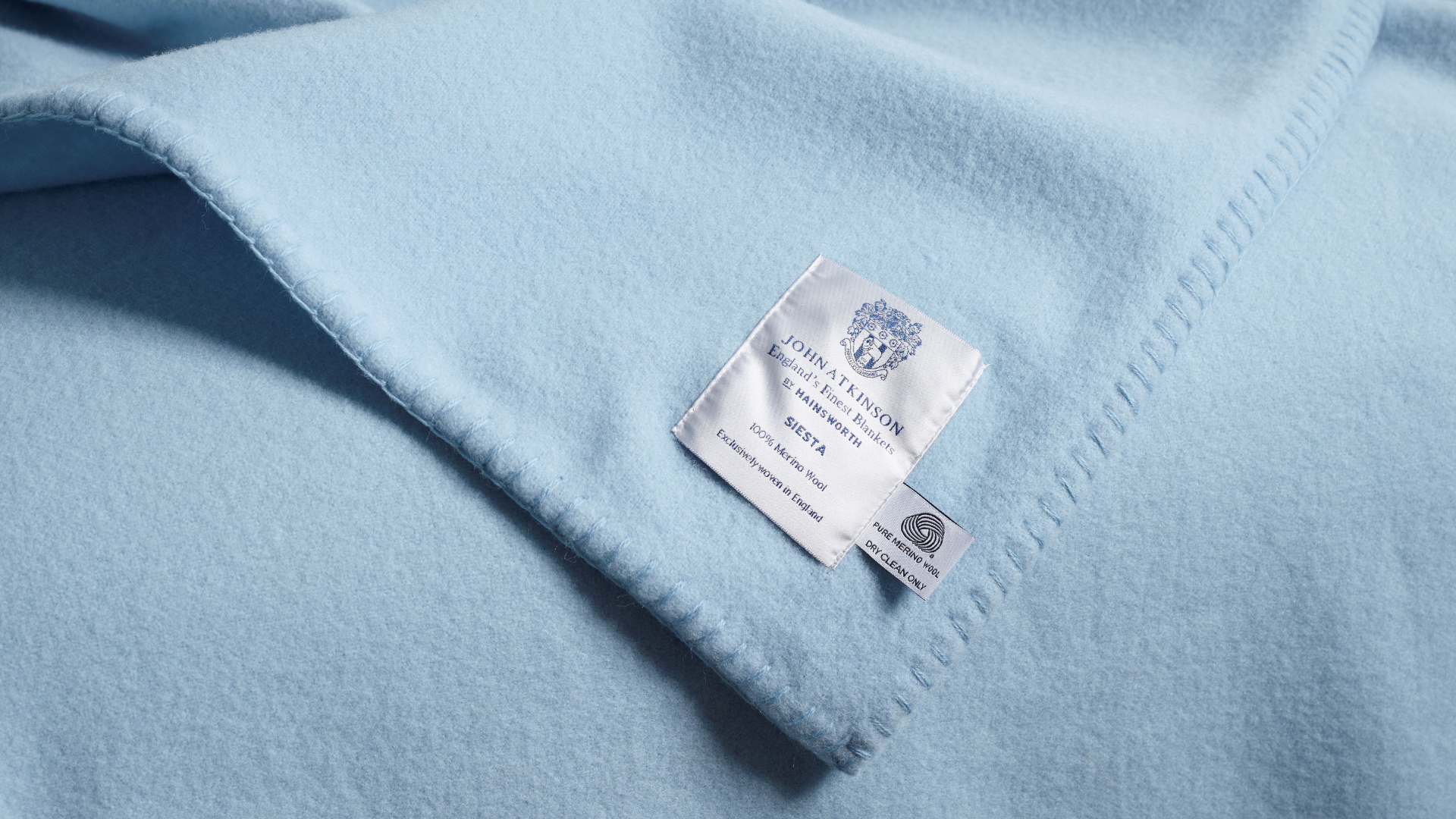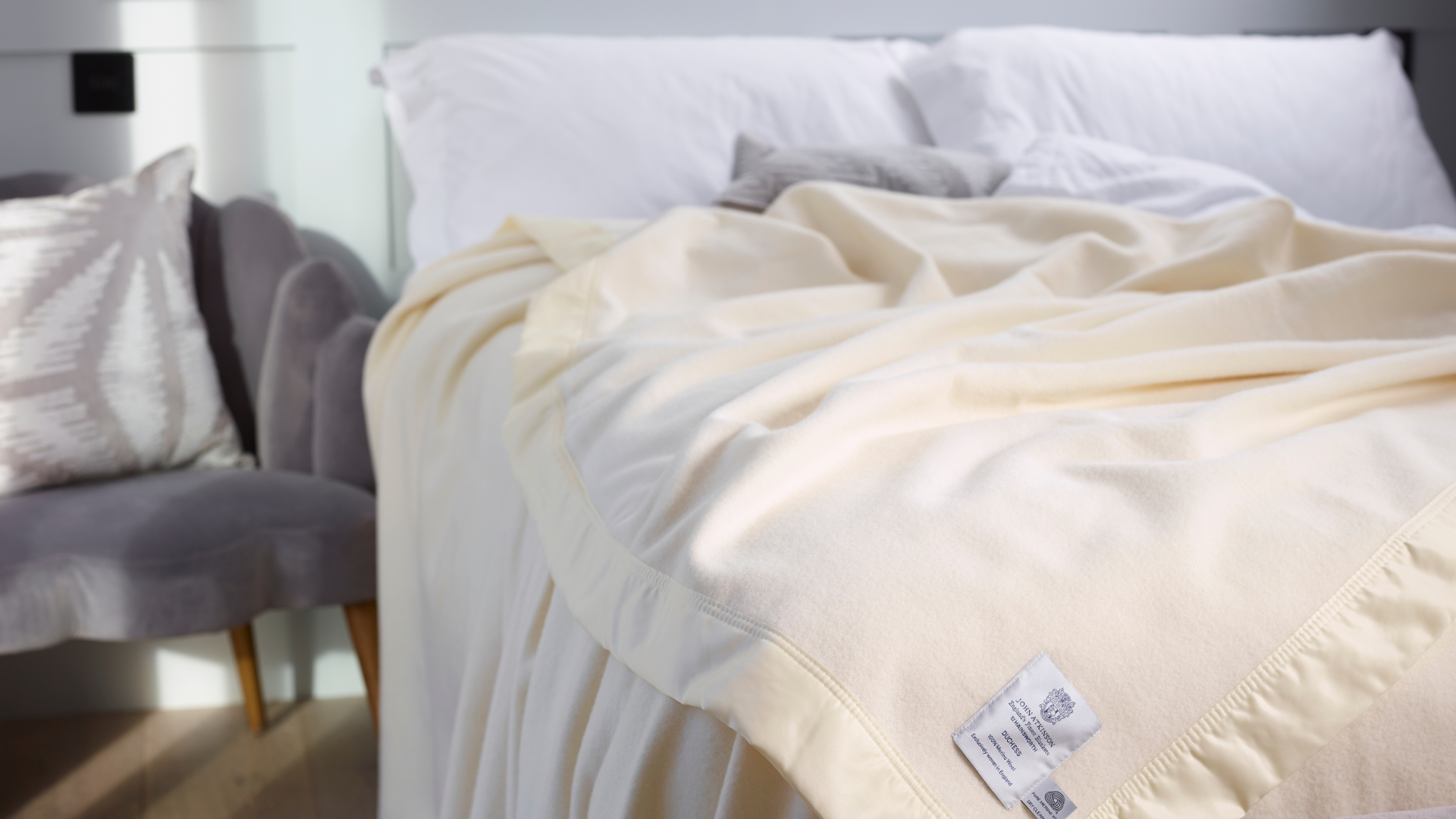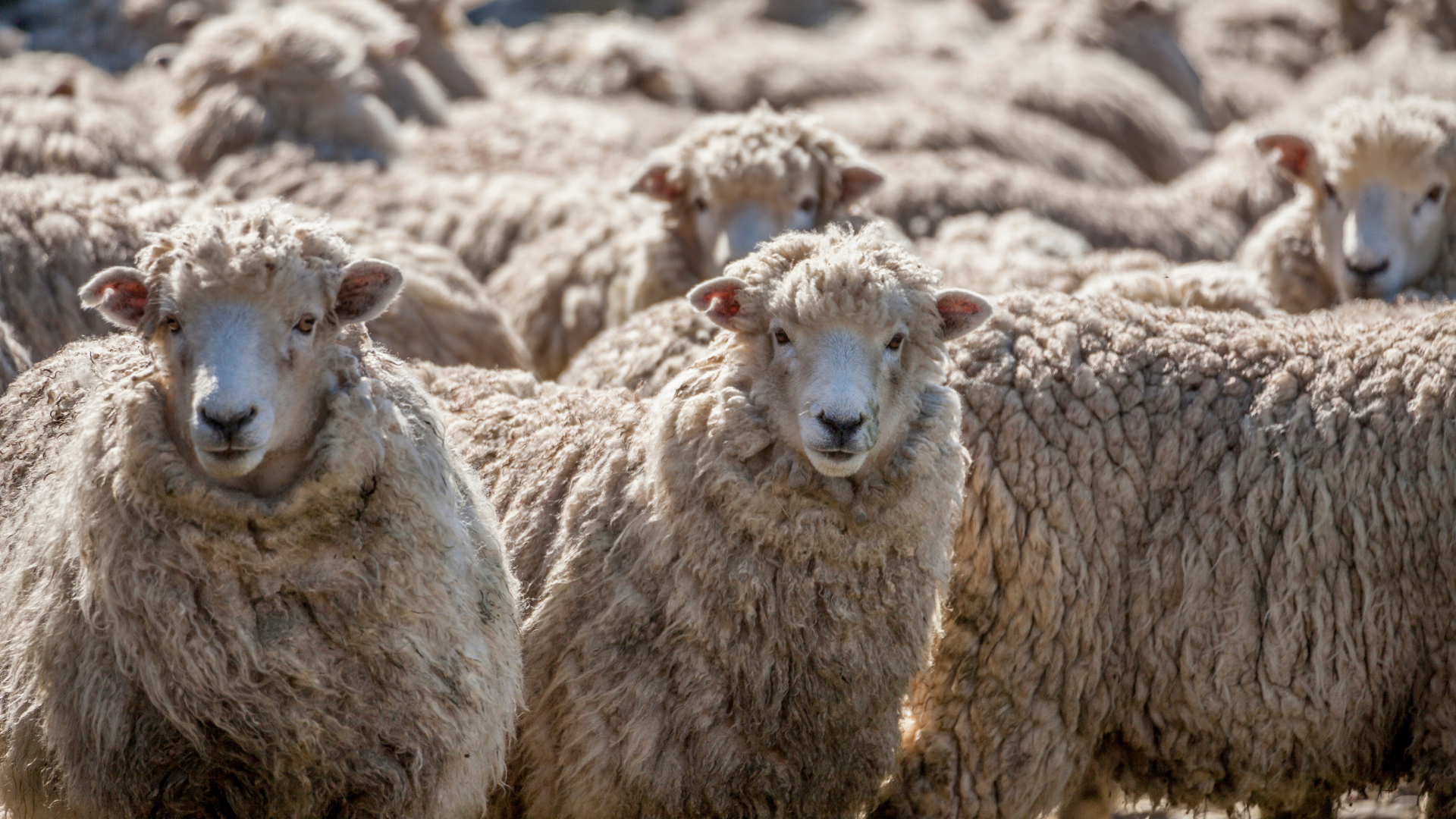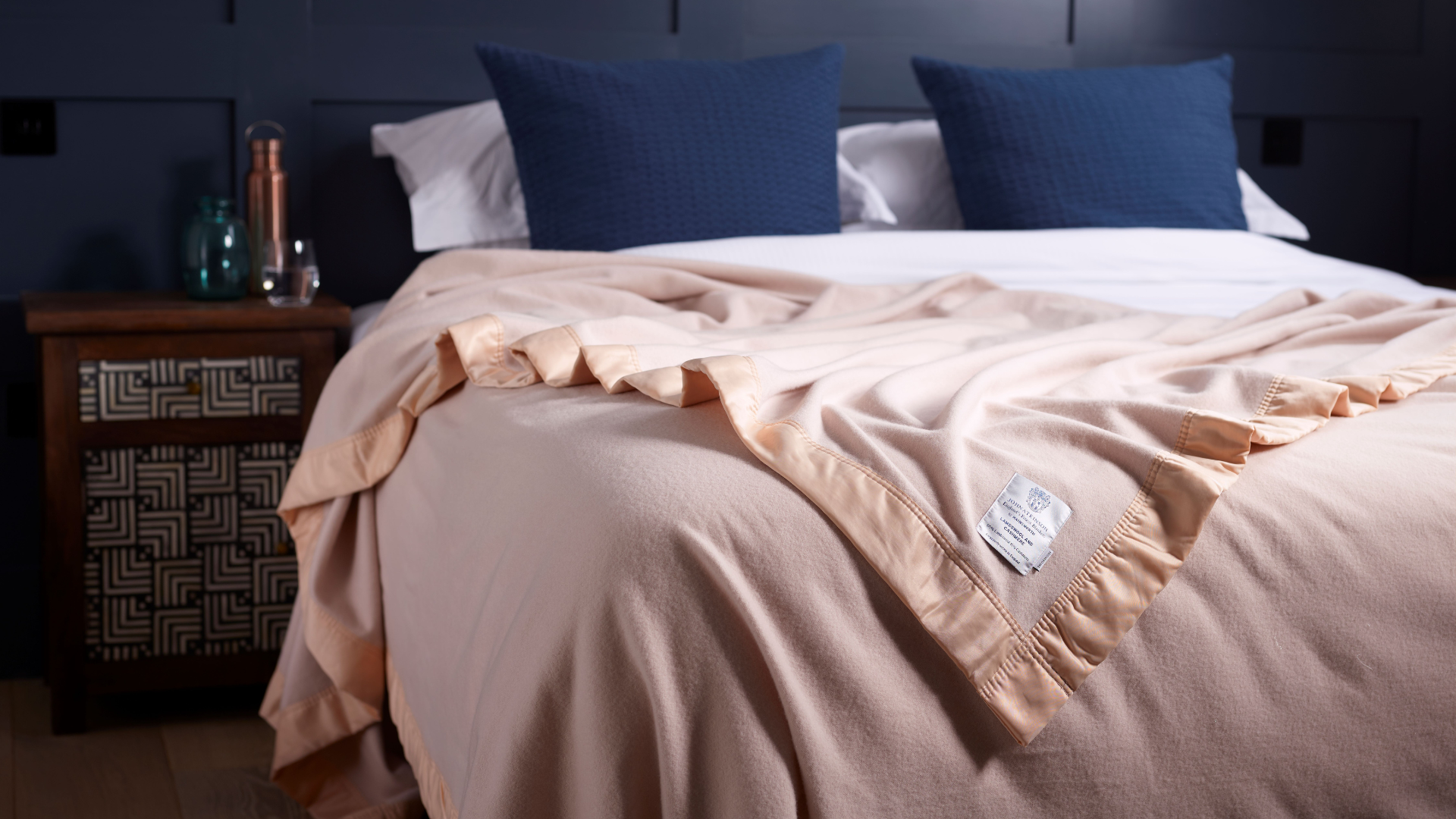
Get a better night’s sleep under wool
When it comes to health and wellbeing, sleep plays a pivotal role.
According to the Sleep Foundation, adults typically require 7-9 hours of sleep per night, yet as many as 1 in 5 people in the UK don’t achieve this and suffer from poor sleep quality, having a profound impact on their daily lives.
When we think of maintaining a healthy lifestyle, we often focus on diet and exercise. However, quality sleep is just as critical for our wellbeing. Prolonged periods of poor sleep can lead to a variety of health concerns; from compromised cognition, a weakened immune system, to an increased risk of depression and poor physical health.
Getting a good night’s sleep is about starting with the right foundations. One solution is John Atkinson woollen blankets, which offer a number of sleep benefits.
So what are the key health and wellbeing benefits of sleeping under woollen bedding?

Enhanced REM sleep
REM sleep is a crucial part of the sleep cycle that aids in memory consolidation and rejuvenation. Wool can increase the duration of the REM phase of sleep, allowing for a more restful, productive sleep.
The Sleep Research Laboratory at the University of Sydney found that participants who slept on wool fell asleep 4 minutes faster than those on synthetic and had a significantly higher duration of REM sleep.
A Woolmark report referencing a 1990 human sleep study found that sleeping under wool bedding increased participants’ REM (Rapid Eye Movement) sleep periods by 25% compared to sleeping under cotton/acrylic bedding. The study found that wool allowed greater natural skin cooling associated with Stage 4 REM sleep. The author concluded that wool blankets deliver better thermal insulation, moisture transport, and moisture buffering than the cotton/acrylic blanket.

Micro-climate control
Wool regulates your body temperature keeping you warm in winter and cool in summer. A steady temperature also leads to a more restful sleep.
Wool fibres are unique in their ability to both insulate and breathe, adjusting to the body’s microclimate. It can help to keep a sleeper warm when it’s cold, and cool when it’s hot, resulting in an ideal sleep environment.
According to a study published in Nature and Science of Sleep, the use of wool bedding was associated with a decrease in the likelihood of experiencing excessive sweating during sleep by 50% compared to other materials such as cotton or acrylic bedding, significantly improving sleep quality and overall comfort.

Breathable and moisture-wicking
Wool allows moisture and air to flow through it, making it particularly ideal for people with conditions such as asthma and eczema.
Wool is an outstanding moisture-wicking material. It can absorb up to 30% of its weight in moisture without feeling damp or clammy, drawing perspiration away from the skin. This ensures that the sleeper remains dry and comfortable throughout the night, leading to less sleep disruption.
Research conducted by the University of Sydney has shown that wool sleep products can help regulate skin’s moisture content, reducing discomfort and sleep disturbances caused by excessive perspiration.

Hypoallergenic
Wool is naturally hypoallergenic and so is perfect for anyone with allergies or sensitivities, minimising allergens and irritants for a healthier sleep.
Wool is naturally hypoallergenic and resistant to bacteria, mould, and mildew. These properties make it a healthier choice for sleep products, reducing potential allergen exposure, and the resulting symptoms that can disrupt sleep.
A 2017 study in the Journal of Allergy and Clinical Immunology showed that using hypoallergenic materials like wool can significantly reduce allergy symptoms and enhance sleep quality.

Improved air quality
Wool fibres naturally absorb and hold on to various indoor pollutants, improving the quality of the air in your room and home while you sleep.
One of the lesser-known but highly beneficial aspects of wool is its ability to naturally absorb and hold on to various indoor pollutants. Wool fibres can actually act as a natural air filter, capturing harmful particles such as dust, allergens, mould spores, and even volatile organic compounds (VOCs) that may be lurking in your indoor air.
As you sleep under a wool blanket, you are essentially surrounded by a continuous air purification system. This creates a cleaner, healthier sleeping environment by reducing the concentration of pollutants in the air. A study published in the Key Engineering Materials Journal found that wool products can remove indoor air pollutants by up to 96%, improving the quality of the air in your room and home.

Antimicrobial
Due to its protein composition and unique surface scale structure on which bacteria are unable to survive. So you can sleep in the comfort it’s fresh and clean.
Wool’s benefits extend to maintaining a clean and healthy sleep environment, thanks to its antimicrobial properties. The protein composition of wool, specifically the presence of a protein called keratin, and its unique surface scale structure create an environment that is inherently hostile to bacteria. This inhibits bacterial growth, keeping your bedding fresher and cleaner for a longer period.
Sleeping on and under wool products, therefore, reduces the risk of bacterial contamination that can lead to odours or potential infections. This offers the comforting assurance of knowing that your bedding is as clean and fresh as it feels, even after extended use. A study in the Molecules Journal found that woollen materials have significantly lower rates of bacterial survival compared to synthetic fabrics.

Superior comfort and enhanced ‘overall sleep satisfaction’
Wool has a unique spring-like fibre structure. The natural crimp offers excellent support, as well as relief from bed sores and other conditions.
Using wool can improve overall sleep satisfaction. Its comforting texture and weight can lead to a sense of calm and relaxation, facilitating the transition to sleep.
In a study published in the Nature of Science and Sleep, participants who used wool bedding reported a significant improvement in sleep satisfaction.
Are you ready for your best night’s sleep?
Ditch the duvet and reach for a John Atkinson woollen blanket.


